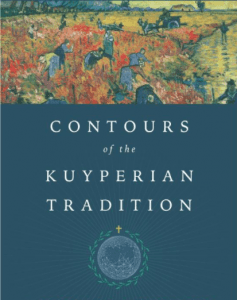 In my academic life — from my college days until today — I have heard the Yeas and the Nays about developing a Christian worldview. As a college student I read Francis Schaeffer and Hans Rookmaaker and came away with a worldview. They were advocating worldview as a theory. Those were heady days for someone like me who had not been exposed to alternatives.
In my academic life — from my college days until today — I have heard the Yeas and the Nays about developing a Christian worldview. As a college student I read Francis Schaeffer and Hans Rookmaaker and came away with a worldview. They were advocating worldview as a theory. Those were heady days for someone like me who had not been exposed to alternatives.
A few years back I read David Naugle’s Worldview. I found Steve Wilkens and Mark Sandford’s Hidden Worldviews.
So it was interesting to read Craig Bartholomew’s discussion of worldview — actually defense of worldview theory — in his Contours of the Kuyperian Tradition. Bartholomew contends, and it seems quite reasonable to me, that as we know it today the worldview theory is a Kuyperian and Reformed tradition.
Worldview theory changed Bartholomew’s life as a South African:
Naming it was huge; it enabled me to see that the gospel is comprehensive and relates to all of life as God has made it, including politics, which was the rubicon one dared not cross as an ordinary South African evangelical. I had been locked into a type of Christianity that provided a church view, but now the whole of creation opened up before me as the theater of God’s glory. My faith remained as real, but the vista before me opened up immeasurably…. In fact, quite the reverse; it enabled me to see that the gospel could and should be brought to bear critically on all aspects of life, including the racism of apartheid in South Africa.
Worldview language emerges out of Kant, Schelling, Hegel and then found a Christian counter-point worldview in the Scotsman James Orr and Dutch Abraham Kuyper. Kuyper’s famous book is called Lectures on Calvinism. As such, from the outset Christian worldview countered modernity and modernism and liberalism.
His focus is Kuyper:
Calvinism, on the other hand, is a worldview because it developed a distinctive theology and church order, and then a form for political and social life, through which one could interpret the world order, and finally a distinctive approach to art and science.
It operates with a relationship with God, with others, and with the world. Thus, redemption is first and it is not Kuyperian worldview until redemption is acknowledged as it is redemption that works into the fallen human being. Only the redeemed can perceive the world as God intends it to be perceived. In relationship with others Kuyper was big on equality of all humans as fallen and in need of redemption and made in the image of God, so there is an inherent democratic theory of life. The redeemed human then knows how to perceive the world as God’s creation and the theater of God’s glory.
It is important to Kuyperian thinking that all humans are fallen and cannot know God’s way apart from revelation and redemption. Unlike Carl Henry and Francis Schaeffer there is a stronger emphasis against the autonomy of human reason in Kuyper.
Modern proponents include James Sire but it is a pity Bartholomew doesn’t interact with Wilken and Sanford, whose book is an outstanding teaching book.
What are the problems with worldview theory?
1. 1. It intellectualizes the gospel.
2. It universalizes the gospel.
3. It relativizes the gospel.
4. It becomes disconnected from Scripture and thus becomes vulnerable to the spirits of the age.
5. Rather than leading to the transformation of society, a worldview entrenches middle-class Christianity and leads to unhealthy messianic activism.
How does Bartholomew define worldview?
Worldview is an articulation of the basic beliefs embedded in a shared grand story which are rooted in a faith commitment and which give shape and direction to the whole of our individual and corporate lives.















